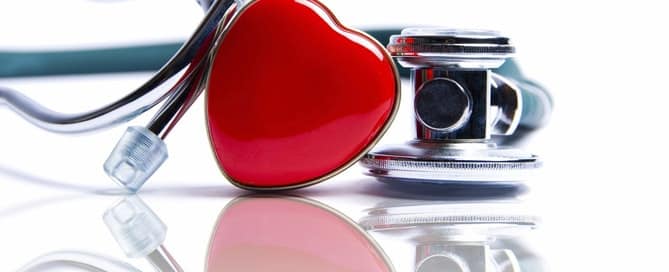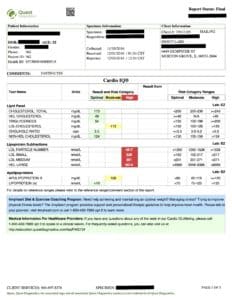Half of all heart attack patients have “normal” cholesterol
So why do they have heart attacks? Are we missing something with conventional cholesterol tests?

50% of heart attack patients have normal cholesterol.
In a standard lipid panel, we test for HDL (the “good” cholesterol), LDL (the “bad” cholesterol), Triglycerides (fat) and Total Cholesterol. A doctor’s decision to treat is largely based on your health history and something called the Framingham Index . If you plug in your cholesterol numbers, blood pressure and your age, the calculator will spit out your chances of having an event in the next 10 years.
If your 10-year risk score is high enough, many doctors prescribe statin drugs like Lipitor or Crestor or recommend lifestyle changes.
Ironically, though, a low Framingham Risk Score does not necessarily mean you are not at risk. Remember the 50% of heart attack patients who have “normal” cholesterol numbers? Certainly there are other factors at play.
One such factor is the size and number of the cholesterol particles. As a somewhat simplistic explanation, small particles are more likely to get stuck in the walls of your blood vessels. Larger ones tend not to.
There are a number of blood tests on the market that actually measure and count your small and large LDL and HDL cholesterol particles, and assign risk accordingly. One such test is the CardioIQ® Lipid Panel.
Each Cardio IQ test comes with access to the 4MyHeart program which includes a phone consultation with a Clinical Educator to help you understand the results and get advice about how to improve your numbers.
Following is an actual test result from a fit, non-diabetic 52-year-old man.
Note how the LDL, HDL, Triglycerides and Total Cholesterol are all in or very nearly in normal, healthy ranges. If this is all you had to work with, you might conclude this patient has very low risk for heart disease or stroke.
But if you look at the LDL-P and HDL-P numbers, all you see is red.
If you are inclined to consult “Dr. Google,” some good people to check out are Dr. Mark Hyman, Mark Sisson and Chris Kresser. They all have written about the importance of cholesterol particle size in assessing cardiac risk.
The problem is, many doctors won’t order it for you. If you want it, you need to seek it out for yourself.
That’s where we come in.
If you live in Illinois, you can order this test directly from InOut Labs for $169. No doctor’s order required. www.inoutlabs.com/CardioIQ


